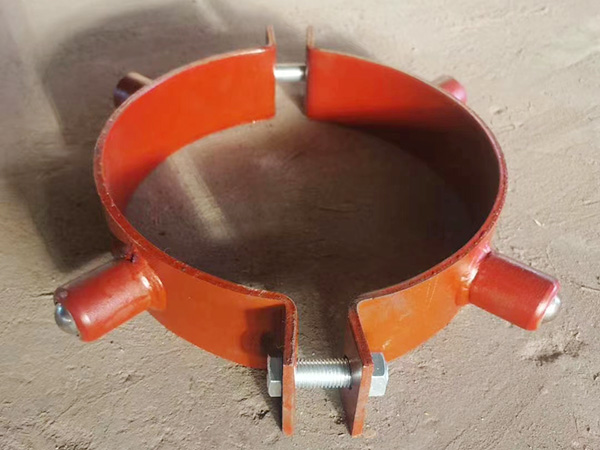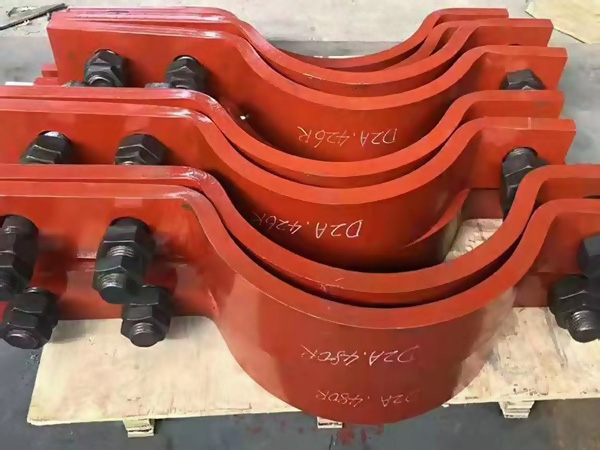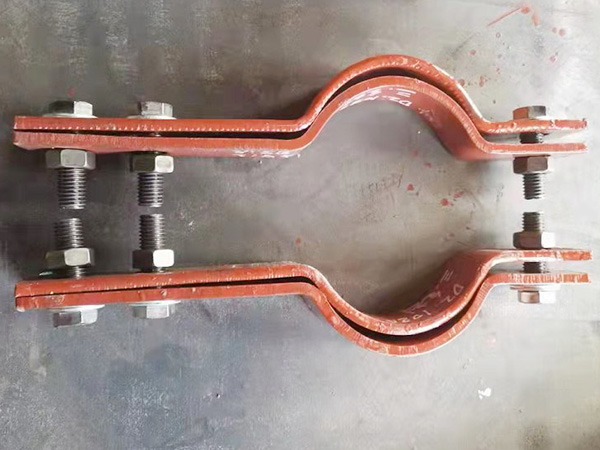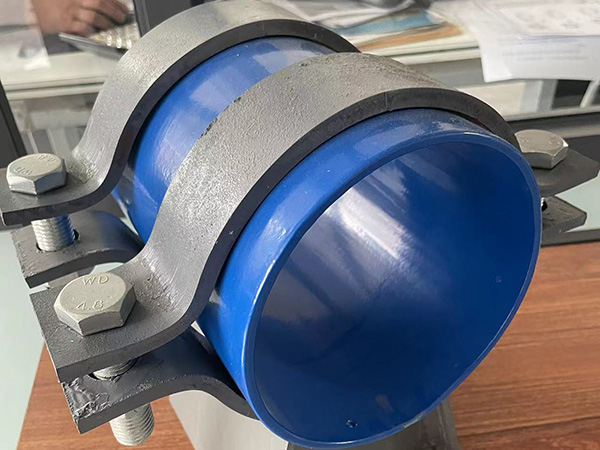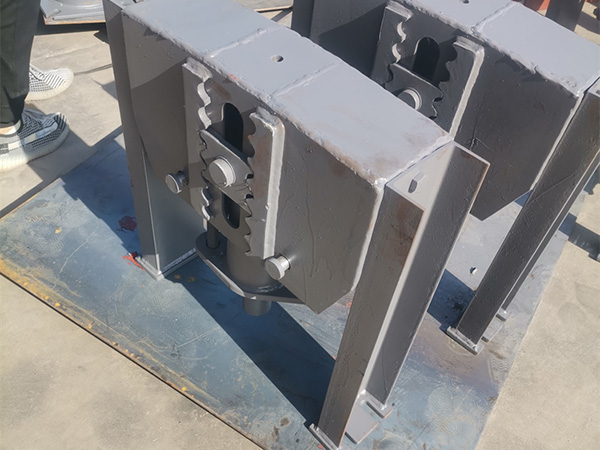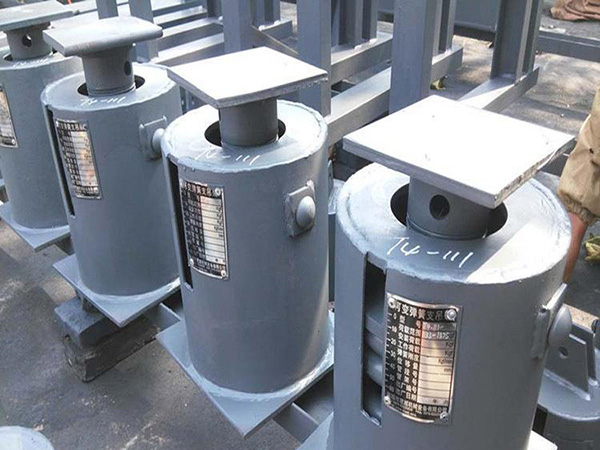The Role of Pipe Insulation Supports in Preventing Heat Loss and Condensation
Author:Mingde Time:2025-06-16 11:47:45 Click:164
During the operation of pipeline systems in industrial production and building facilities, heat loss and condensation have long been significant issues affecting energy efficiency and equipment stability. As a crucial auxiliary facility, pipe insulation supports play an irreplaceable role in addressing these problems through their unique structures and functions.
I. Hazards of Heat Loss and Condensation in Pipelines
(A) Negative Impacts of Heat Loss
In the industrial sector, when pipeline systems transport high-temperature media, heat loss leads to a substantial increase in energy consumption, thereby significantly raising production costs. In the building sector, heat loss weakens the effectiveness of heating systems, resulting in severe energy waste and making it difficult to achieve the desired indoor temperatures.
(B) Hazards of Condensation
Condensation is also a significant concern. When the surface temperature of a pipeline drops below the dew point of the surrounding environment, water vapor in the air condenses into droplets that adhere to the pipeline surface. These condensed water droplets accelerate the corrosion of metal pipelines, greatly shortening their service life. Additionally, the dripping of condensed water can cause indoor dampness, mold growth, and other environmental issues, affecting the normal use of the space.
II. Working Principles of Pipe Insulation Supports
(A) Structural Analysis
Pipe insulation supports primarily consist of thermal insulation materials and supporting structures. The thermal insulation material is the core component, effectively blocking heat transfer, while the supporting structure provides stable support for the pipelines, ensuring the safe operation of the pipeline system.
(B) Thermal Insulation Principle
The insulation principle of these supports lies in interrupting the thermal bridging effect between the pipeline and the supporting structure. Thermal bridging allows heat from the pipeline to be rapidly conducted away through the supporting structure, but high-quality thermal insulation materials can effectively isolate this heat conduction, reducing heat loss.
(C) Anti-Condensation Principle
By using thermal insulation materials to lower the pipeline surface temperature only to a level still above the ambient dew point, condensation is prevented. Moreover, some insulation supports incorporate scientific drainage designs to promptly discharge any small amounts of condensed water that may form, further safeguarding the pipeline.
III. Specific Functions of Pipe Insulation Supports
(A) Efficient Prevention of Heat Loss
Reducing Conductive Heat Loss: Thermal insulation materials effectively isolate the contact points between the supports and the pipelines, blocking heat conduction paths and reducing the possibility of heat loss through these contact points.
Lowering Convective Heat Loss: By optimizing the support design, air convection around the supports and pipelines is minimized, thereby reducing heat loss caused by air movement.
(B) Effective Prevention of Condensation
Maintaining Pipeline Surface Temperature: Thermal insulation materials continuously maintain the pipeline surface temperature, preventing it from dropping too low and thus eliminating the formation of condensed water from the source.
Drainage Design: Insulation supports with drainage structures can promptly and effectively discharge any condensed water that may occur, preventing damage to the pipeline caused by water accumulation.
(C) Extending the Lifespan of Pipeline Systems
By reducing the damage to pipelines caused by heat loss and condensation, the risks of pipeline damage due to thermal expansion and contraction and corrosion are lowered. This effectively extends the overall service life of the pipeline system, reducing maintenance costs and replacement frequency.
IV. Application Advantages in Different Scenarios
(A) Industrial Pipelines
In industrial settings such as chemical and power plants involving high-temperature pipeline systems, pipe insulation supports can significantly improve energy utilization efficiency, reduce energy waste caused by heat loss, and ensure the stability and economy of production processes.
(B) Building Pipelines
In building heating, ventilation, and air conditioning (HVAC) and water supply and drainage systems, insulation supports can effectively prevent condensation and enhance energy efficiency. For example, in heating pipelines, they reduce heat loss to ensure indoor warmth and comfort; in water supply and drainage pipelines, they prevent condensed water from forming, protecting the building environment.
(C) Special Environments
In cold regions, insulation supports can enhance the thermal insulation performance of pipelines, preventing them from freezing and cracking. In humid environments, their excellent thermal insulation and drainage designs effectively address the condensation risks posed by high humidity, demonstrating strong environmental adaptability.
V. How to Choose the Right Pipe Insulation Supports
(A) Material Selection
Selecting high-efficiency thermal insulation materials is crucial, such as ceramic fiber and polyurethane. These materials possess excellent thermal insulation properties, effectively improving the performance of insulation supports.
(B) Specification Matching
Based on parameters such as pipeline diameter, temperature of the transported medium, and load-bearing capacity, choose insulation support models that match these parameters to ensure that the supports can provide stable support while delivering optimal insulation effects.
(C) Installation Considerations
Proper installation is essential for ensuring the performance of insulation supports. Installation should strictly follow specifications to ensure that the supports are tightly connected to the pipelines and that the thermal insulation materials completely cover the relevant areas, thus guaranteeing their normal functioning.
VI. Conclusion
Pipe insulation supports play a vital role in preventing heat loss and condensation, serving as important facilities for ensuring the efficient and stable operation of pipeline systems. With the continuous development of technology, the performance of insulation supports will continue to improve. Both in industrial production and building sectors, attention should be paid to the selection and application of pipe insulation supports to enhance energy utilization efficiency, reduce equipment maintenance costs, and achieve sustainable development.
 Hot Products
Hot Products
 Contact Us
Contact Us
Contact:
Mobile:+86 +86 19133378808
Website:mingdepipe.com
Address:


